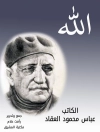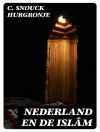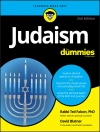In ’Simon Magus, ’ G. R. S. Mead delves into the complex interplay between Gnosticism and early Christianity through the enigmatic figure of Simon Magus, often considered the archetypal magician and heretic. Mead employs a scholarly yet accessible literary style, weaving historical narrative with philosophical inquiry to dissect the theological implications of Simon’s teachings and his influential role within the nascent Christian movement. This text serves as both a critical examination of early Christian texts and a compelling commentary on the nature of spiritual authority and dissent during a formative period in religious history. G. R. S. Mead was a prominent scholar in the areas of early Christianity and Gnostic traditions, deeply influenced by the intellectual milieu of thelate 19th and early 20th centuries. His extensive studies in theology, linguistics, and philosophy informed his understanding of Simon Magus, allowing him to integrate scholarly rigor with an appreciation for the mystical aspects of Gnostic thought. Mead’s passion for uncovering lost texts and ideas reflects his commitment to shedding light on the spiritual landscapes often overlooked by his contemporaries. ’Simon Magus’ is essential reading for those interested in the intersections of mysticism, religious history, and the evolution of Christian thought. Mead’s insightful analysis not only enhances our understanding of Simon’s legacy but also invites readers to reflect on the broader implications of belief and dissent in shaping religious identity. This book is a indispensable resource for scholars, theologians, and anyone curious about the rich tapestry of early religious thought.
Om författaren
G. R. S. Mead, born in 1863, was a distinguished English historian, writer, editor, translator, and an influential thinker in the field of theosophy and gnosticism. His scholarly endeavor is most seen in his comprehensive work ’Simon Magus, ’ an exploration of the titular figure from Christian lore and a seminal text delving into early Christian heresy, Gnosticism, and the figure’s impact on occult traditions. A graduate of St. John’s College, Cambridge, Mead rigorously examined the esoteric and mystic traditions of antiquity and provided the English-speaking world profound insights through his translations of Gnostic and Hermetic texts. Notably, he served as the editor of ’The Theosophical Society’ magazine and was close to the society’s co-founder Helena Blavatsky. His literary style is characterized by meticulous research, clear exposition, and a profound understanding of the philosophical currents of his subjects. In addition to ’Simon Magus’, his other notable works include ’Fragments of a Faith Forgotten’, ’The Gnostic John the Baptizer’, and ’Thrice Greatest Hermes.’ His contribution as an esoteric scholar remains invaluable, providing a foundation for the study of Gnosticism and Hermeticism in modern times.












